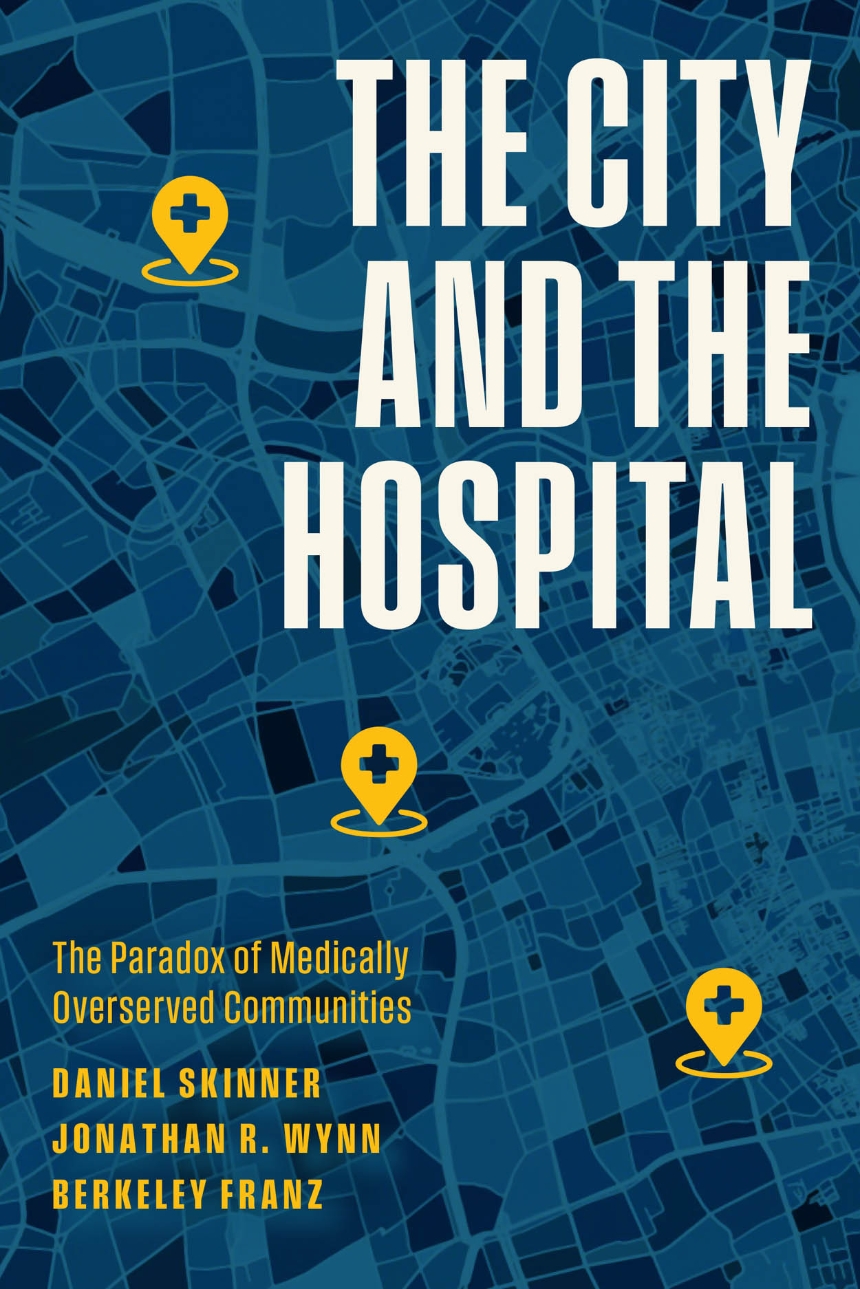The City and the Hospital
The Paradox of Medically Overserved Communities
9780226829678
9780226829654
9780226829661
The City and the Hospital
The Paradox of Medically Overserved Communities
A surprising look at how hospitals affect and are affected by their surrounding communities.
An enduring paradox of urban public health is that many communities around hospitals are economically distressed and, counterintuitively, medically underserved. In The City and the Hospital two sociologists, Jonathan R. Wynn and Berkeley Franz, and a political scientist, Daniel Skinner, track the multiple causes of this problem and offer policy solutions.
Focusing on three urban hospitals—Connecticut’s Hartford Hospital, the flagship of the Hartford Healthcare system; the Cleveland Clinic, which coordinates with other providers for routine care while its main campus provides specialty care; and the University of Colorado Hospital, a rare example of an urban institution that relocated to a new community—the authors analyze the complicated relationship between a hospital and its neighborhoods. On the one hand, hospitals anchor the communities that surround them, often staying in a neighborhood for decades. Hospitals also craft strategies to engage with the surrounding community, many of those focused on buying locally and hiring staff from their surrounding area. On the other hand, hospitals will often only provide care to the neighboring community through emergency departments, reserving advanced medical care and long-term treatment for those who can pay a premium for it. In addition, the authors show, hospitals frequently buy neighborhood real estate and advocate for development programs that drive gentrification and displacement.
To understand how urban healthcare institutions work with their communities, the authors address power, history, race, and urbanity as much as the workings of the medical industry. These varied initiatives and effects mean that understanding urban hospitals requires seeing them in a new light—not only as medical centers but as complicated urban forces.
An enduring paradox of urban public health is that many communities around hospitals are economically distressed and, counterintuitively, medically underserved. In The City and the Hospital two sociologists, Jonathan R. Wynn and Berkeley Franz, and a political scientist, Daniel Skinner, track the multiple causes of this problem and offer policy solutions.
Focusing on three urban hospitals—Connecticut’s Hartford Hospital, the flagship of the Hartford Healthcare system; the Cleveland Clinic, which coordinates with other providers for routine care while its main campus provides specialty care; and the University of Colorado Hospital, a rare example of an urban institution that relocated to a new community—the authors analyze the complicated relationship between a hospital and its neighborhoods. On the one hand, hospitals anchor the communities that surround them, often staying in a neighborhood for decades. Hospitals also craft strategies to engage with the surrounding community, many of those focused on buying locally and hiring staff from their surrounding area. On the other hand, hospitals will often only provide care to the neighboring community through emergency departments, reserving advanced medical care and long-term treatment for those who can pay a premium for it. In addition, the authors show, hospitals frequently buy neighborhood real estate and advocate for development programs that drive gentrification and displacement.
To understand how urban healthcare institutions work with their communities, the authors address power, history, race, and urbanity as much as the workings of the medical industry. These varied initiatives and effects mean that understanding urban hospitals requires seeing them in a new light—not only as medical centers but as complicated urban forces.
240 pages | 18 halftones, 14 tables | 6 x 9 | © 2023
Sociology: Demography and Human Ecology, Medical Sociology, Race, Ethnic, and Minority Relations, Social Institutions, Urban and Rural Sociology
Reviews
Table of Contents
Acronyms
Introduction
1 Why Are So Many Hospital Neighborhoods Health Poor?
2 How History “Keys” the Hospital and Community Relationship
3 “What’s Your Total Commitment to the Community?”: Explicit and Implicit Hospital Development Strategies
4 Healthcare in the Contact Zone: Unconventional Spaces, Institutional Changes, and Communities of Color
5 Ambiguous Obligations and Mixed Expectations
6 Six Policy Areas for Communities and Hospitals
Acknowledgments
Appendix A: On Methods
Appendix B: Comparative Data
Appendix C: Hospital-Identified Needs and Programs
Notes
References
Index
Introduction
1 Why Are So Many Hospital Neighborhoods Health Poor?
2 How History “Keys” the Hospital and Community Relationship
3 “What’s Your Total Commitment to the Community?”: Explicit and Implicit Hospital Development Strategies
4 Healthcare in the Contact Zone: Unconventional Spaces, Institutional Changes, and Communities of Color
5 Ambiguous Obligations and Mixed Expectations
6 Six Policy Areas for Communities and Hospitals
Acknowledgments
Appendix A: On Methods
Appendix B: Comparative Data
Appendix C: Hospital-Identified Needs and Programs
Notes
References
Index
